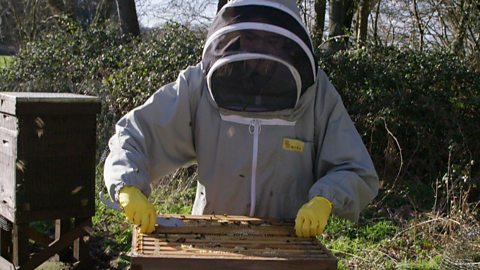Georgie is 21. She’s a scuba diver and underwater photographer.
Introduced to fishing by her dad, Georgie made her hobby into a career when she followed her obsession with the ocean all the way to the sea bed.
Georgie: Hi, my name's Georgie. I'm 21 and I'm a scuba diver and underwater photographer.
So I was initially drawn to the water mainly by my dad. He's a very keen pike fisherman, which is a predatory freshwater fish. He took me fishing from a very early age and taught me about conserving local wildlife. And then from there, as I grew older, I just became more and more obsessed with the sea rather than freshwater systems. And here I am today.
When I first started diving, I was very keen to keep developing my skills. One way I thought would be a great way to improve my marine identification, but also get in the water more, was to get involved with a project called Sea Search. Sea Search is coordinated by the Marine Conservation Society. And it encourages divers and snorkelers to record the marine life that they see in the water. Ultimately, this could help make management decisions at high levels, but it also allows people to get involved and engaged with marine life that's just on their doorstep.
So first things first, when I arrive I'll check the site with my buddy and make sure that the conditions are safe. I'll then start getting my kit out, making the appropriate safety checks, both of my cylinder and with my camera equipment as well, just to make sure that all the seals are watertight, so I don't flood it. When we're both ready to go, we'll head down to the dive site and we'll get in the water.So typically along the coastline, divers might be looking for shipwrecks and they might be looking for artifacts from them or they might be looking for larger fish like plaice or squid. And those can often be brilliant photo subjects.
What I'm really interested in are the small things and often those small things are really important for telling us more about the habitat and also informing management. So helping things like fisheries management and also contributing to the Sea Search records.Having a passion for anything at such a young age is very important. I think it's really spurred me on. And now I'm 21 and I'm studying, it's really nice to use that passion and integrate that into my daily routine, whether it's through lectures or through diving. I think it's becoming more and more rewarding as time goes on.
I'm just really proud to be part of a community that contributes towards marine conservation.
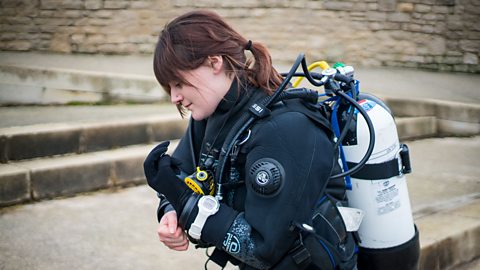
Georgie's journey
Georgie’s dad is a keen pike fisherman and introduced her to wildlife conservation at a young age. As she grew up she became more and more fascinated with the ocean.
Wanting to improve her diving and marine identification skills, Georgie joined a project called Seasearch which encourages divers and snorkelers to record the marine life they see during their underwater adventures. Their findings are used by the Marine Conservation Society to make important management decisions.


Why is marine conservation important?
The ocean covers around 71% of the world’s surface, so knowing what’s going on beneath the waves is just as important as knowing what’s going on above ground. And that’s where marine conservationists come in.
Marine conservationists play a crucial role in keeping our oceans healthy. Through monitoring marine life and underwater ecosystems, they can help us make better environmental choices. They can highlight the impact of plastics on the ocean, for instance, or identify which beaches are and aren’t safe to swim at.
Their findings can even influence fishing patterns to make them more sustainable, and help protect endangered species or habitats.
Below are some examples of the marvellous marine life that can be glimpsed off the UK coastlines.
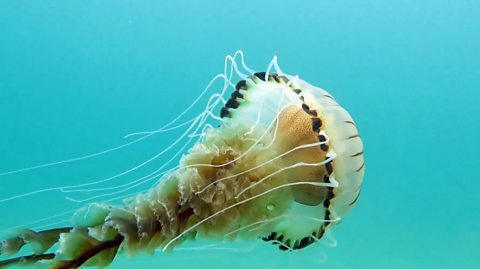
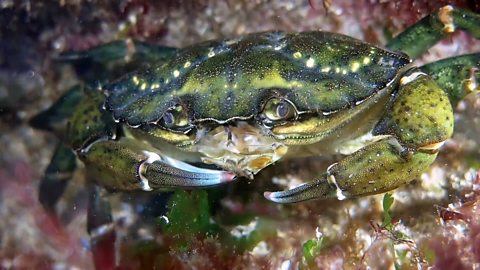
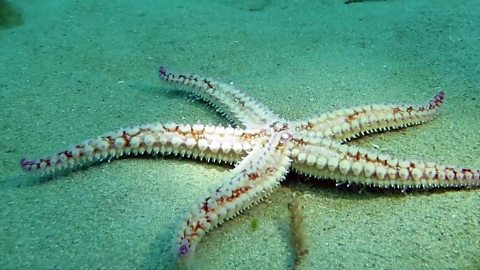

A similar role to a marine conservationist is an oceanographer. Oceanographers study the seas and oceans.
What to expect if you want to become an oceanographer
- Oceanographer average salary: ВЈ14,000 to ВЈ60,000 per year
- Oceanographer typical working hours: 39 to 41 hours per week. You may work evenings, weekends and bank holidays.
What qualifications do you need to be an oceanographer?
You could get into this role via a university course. You can study for a degree in oceanography or a related subject, likeocean science, geology or environmental science. Employers are increasingly looking for postgraduate qualifications, like a master's or PhD. They also value experience of working in marine science or oceanography research. You can get experience through studying for a degree that includes a year in industry with a research organisation or a placement or internship in a laboratory or marine research centre.
Sources: LMI for All, National Careers Service
This information is a guide and is constantly changing. Please check the for the latest information and all the qualifications needed.
For careers advice in all parts of the UK visit: , , and .

Find work experience placements with Workfinder.
Tips and advice
Help with interviews, writing a CV and all things work experience related.

How a blocked toilet led to my sustainable business. video
Scientist Elle spent most of her time in a lab, until her friend’s blocked toilet catapulted her career in a whole new direction.
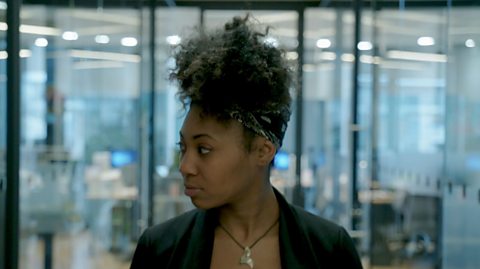
Dan: ornithologist. video
Find out how Dan uses nature to calm her anxiety, whilst also protecting the birds and wetlands she loves.
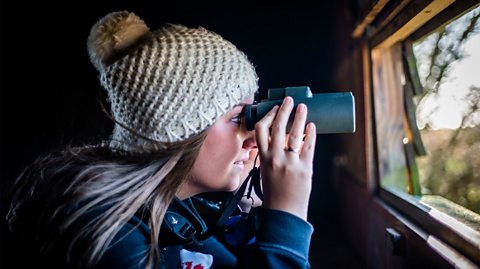
May: beekeeper. video
Despite a near-death experience, May’s love for our pollinating pals won't fade. Find out more about befriending bees.
